Farewell and thank you to the greatest man I've ever known
Were it not for a flash of lightning on a summer night, there would be total darkness
On the afternoon of June 4, after bowing out of a gathering with friends, I returned home to see this in the cloud-drenched southeast corner of my backyard sky:
With a mix of joy and poignancy, I knew immediately what it meant.
My spiritual father of 33 years, The Venerable Khenchen Thrangu Rinpoche, had, as we Buddhists like to say, “entered into parinirvana” (i.e, died) in Kathmandu, Nepal.
The death of this great man was not just a personal loss for me and others who had the privilege of receiving teachings from him.
It was also a kind of species extinction.
Thrangu Rinpoche was the last in a line of old lamas born in Tibet who fled that country amidst the flames of Chinese persecution.
Tibet, a remote country nestled in the bosom of the Himalaya, had been, for 12 centuries, a hub of perhaps the most sophisticated spiritual technology humanity has ever known.
A land replete with mineral-rich mountain water, the Tibetan plateau holds the grand headwaters where the six major rivers of the Asian continent converge—the Yangtze, the Yellow, the Ganges, the Brahmaputra, the Mekong, and the Indus.
Given this abundance of spiritual and material wealth, it was probably just a matter of time until the inevitable occurred.
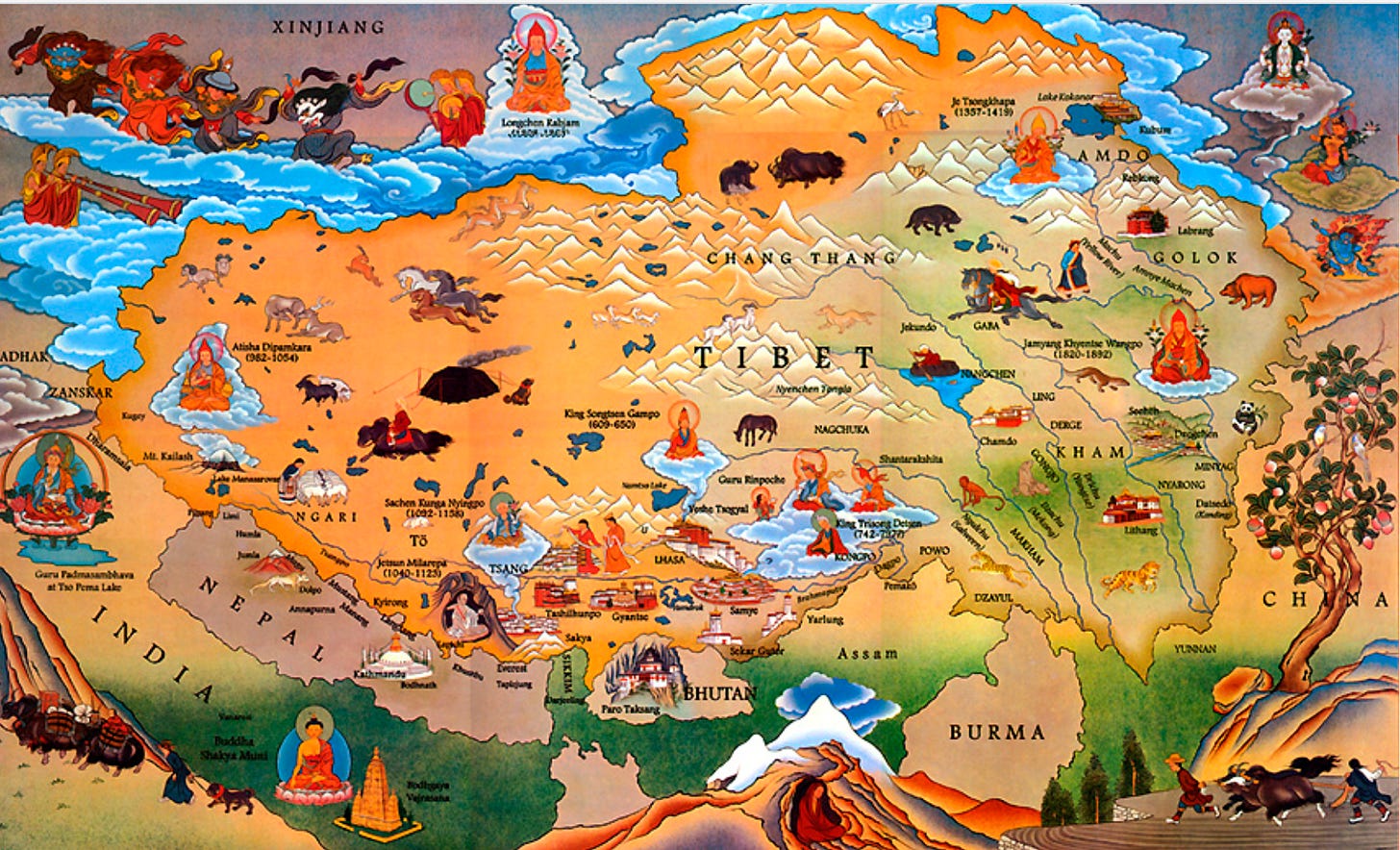
In 1950, the People's Liberation Army (PLA) of China entered Tibet under the premise that Tibet had always been a part of historical China and therefore should be brought back under Chinese control.
Naively, the Tibetans believed the PLA’s initial statements that they had arrived as friends. They welcomed their eastern neighbors with open arms.
That welcome quickly wore out as Tibetans witnessed the PLA performing such indignities as defecating on monastery floors and using the pages of sacred texts as toilet paper.
Celibate Tibetan Buddhist monks and nuns were forced to copulate at gunpoint in public, or to don military uniforms and attend re-education camps.
Children were prohibited from receiving education in their indigenous language, and parents were forced to bury their children alive for any perceived disobedience.
Yak-herding nomads from rural eastern provinces such as Kham, where Thrangu Rinpoche was from, were crated up and transplanted into small apartments in Lhasa, the capital, where food prices skyrocketed by a factor of 10.
Six million Han Chinese poured through Tibet’s open eastern border, forcing the Tibetans into cultural assimilation.
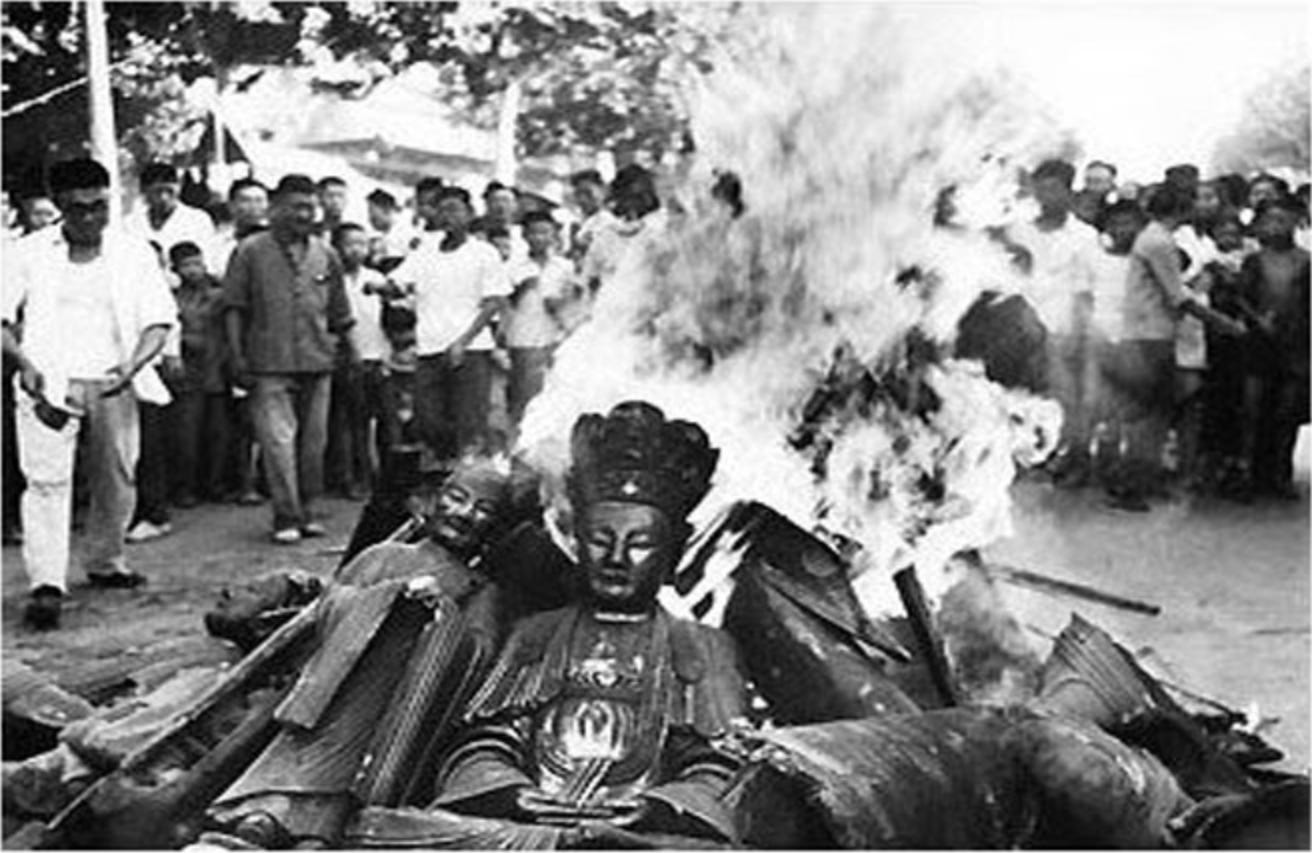
By the late 1950s, the red tide had thoroughly roiled the Land of Snow, and premonitions of genocide became tragic reality.
At age 25, Thrangu Rinpoche led a party of 100 Tibetans in exodus from his eastern homeland of Kham to Lhasa, the capital.
Hiding by day and walking by night, they camped out one afternoon that suddenly went dark and didn’t see that they were completely surrounded by Chinese soldiers.
Yaks panicked and ran in circles amidst the hail of bullets fired at the bewildered refugees. A mortar shell landed right next to Thrangu Rinpoche but did not detonate.
A few stalwart men managed to stabilize a horse long enough for Thrangu Rinpoche to mount it and lead the party safely away from the Chinese assault.
Along with 80,000 other Tibetans who fled in the late 1950s and early 1960s, Thrangu Rinpoche first took refuge in the southern borderland of Sikkim.
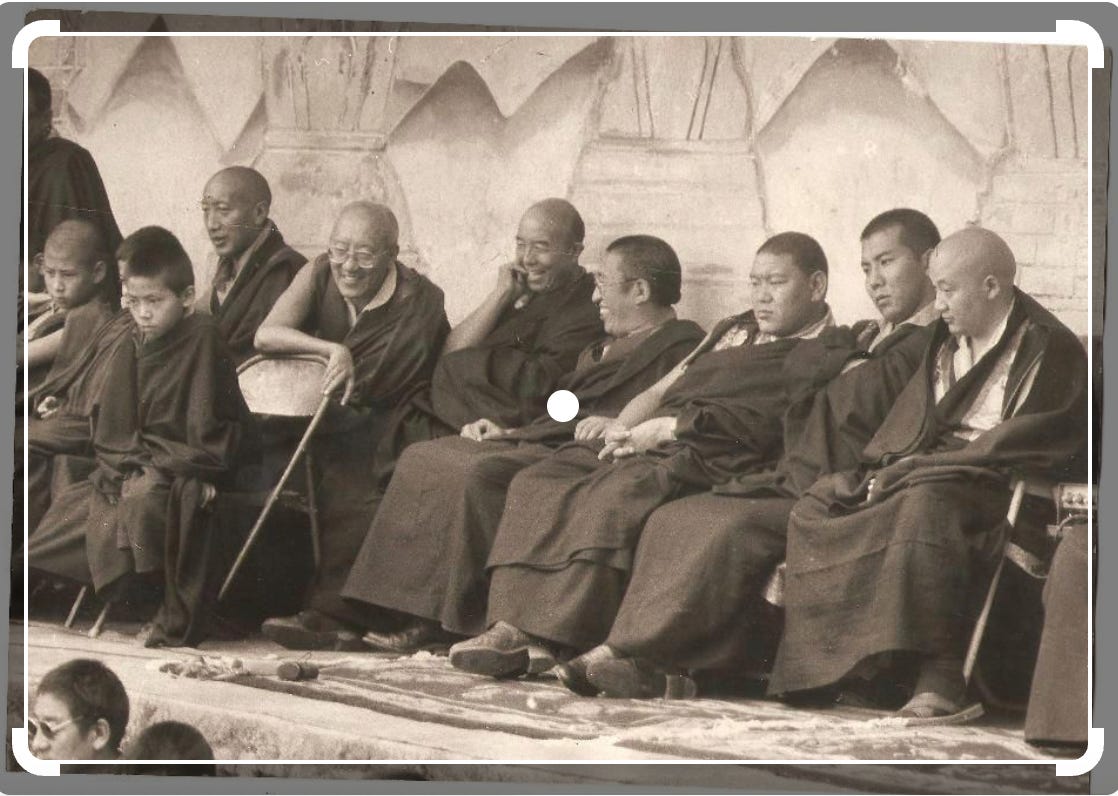
Having lost everything, Thrangu Rinpoche and other high lamas (such as the 16th Karmapa mentioned in the video below) rebuilt the Tibetan way of life in India, Nepal, Bhutan, Sikkim—and eventually in the West.
I first met Thrangu Rinpoche in 1990 at a three-month meditation seminary in Northern Colorado.
My first thought, upon seeing this portly man in maroon robes waddle into the big-top tent where our seminary took place, was, “This man is extremely humble—and yet he can also make thunder and lightning happen.”
He gave a series of talks to us 300 Buddhist initiates that culminated in this prophecy that made the hairs on the back of my neck stand on end:
“We are about to enter an aeon of inconceivable suffering. You students who are sitting here have teachings on how to navigate these times that no one else in the world has. You must learn how to become brave.”
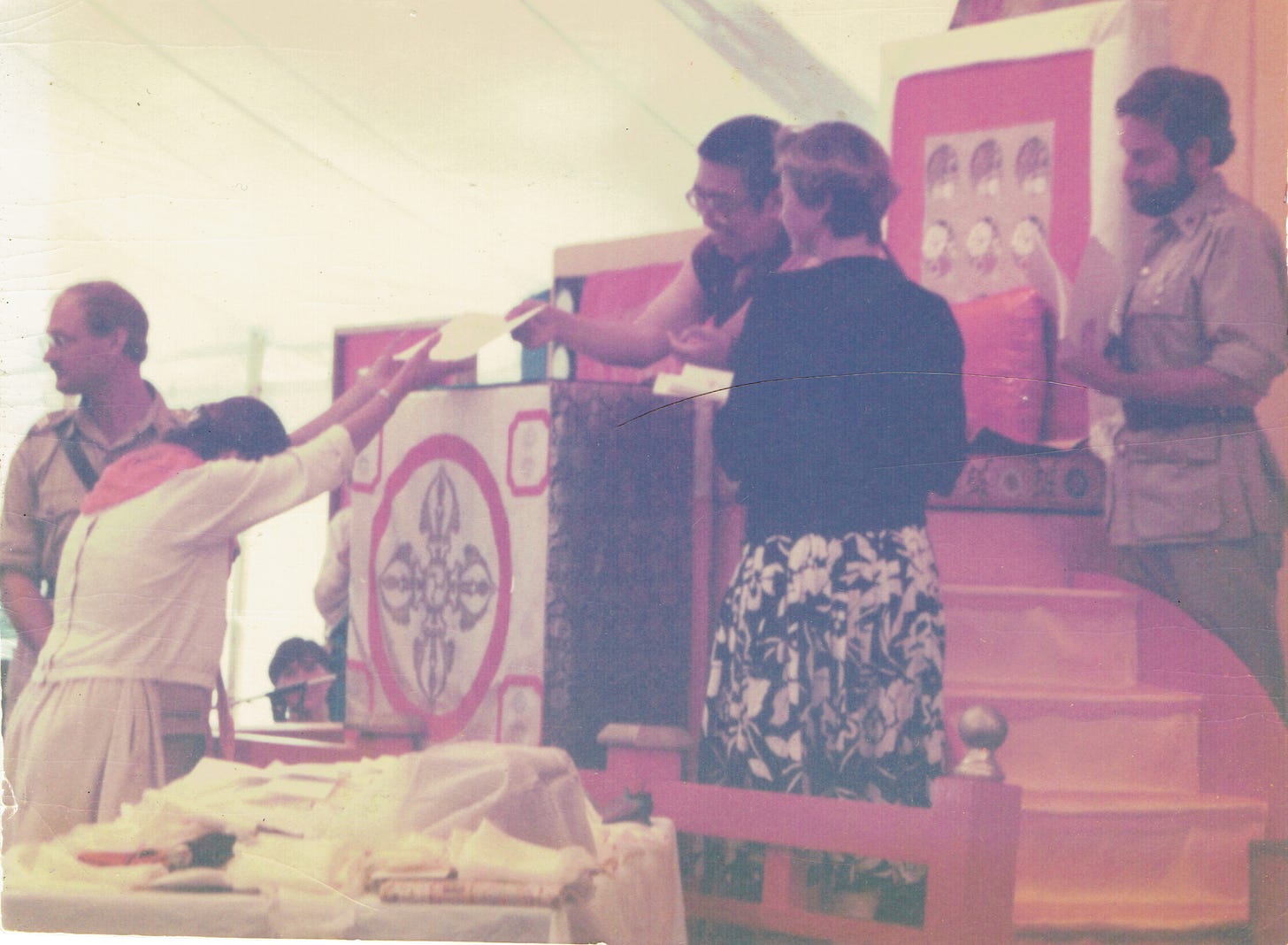
Despite more than half a lifetime spent receiving teachings from him, I still can’t get it through my thick skull how Thrangu Rinpoche and others like him were so joyful when everything they held dear was razed to the ground—
But what I do know is this:
Whenever I succumb to my own siren song of self-pity, depression, or global fatalism, all I have to do is flash on the fact that somehow, some way, I had the incomprehensible good fortune to cross paths with a living Buddha.
And were it not for that flash of lightning my world would be enshrouded in total darkness.
And this good fortune of mine, ironically, came in part at the hands of the PLA, who fulfilled the prophecy made by Guru Padmasambhava in the 8th century:
“When the iron bird flies, and horses run on wheels, the Tibetan people will be scattered like ants across the face of the earth, and the Dharma will arrive in the land of the red man.”
Today, November 4, 2023, as I write this (and likely as you read it), Thrangu Rinpoche’s kudung (sacred remains) is being cremated in Kathmandu.
With a heart full of joy and sorrow, I’m reminded of the words of Milarepa, Tibet’s most famous yogi, as he took his final leave from his most beloved disciple Gampopa:
Oh monk, are you going to Ü or not?
Monk, when you go to Ü
Sometimes thoughts of food will arise.
When thoughts of food arise,
Eat undefiled samadhi [meditative stability] as food.
Recognize all sweet and tasty things as illusion.
Experience whatever arises as dharmakaya [deathless].
Sometimes thoughts of clothing will arise.
When thoughts of clothing arise,
Wear the blissful heat of candali [yogic warmth] as clothes.
Recognize all soft and good things as illusion.
Experience whatever arises as dharmakaya.
Sometimes thoughts of your homeland will arise.
When thoughts of your homeland arise,
Take hold of dharmata [spiritual truth] as your homeland.
Recognize all fatherlands as illusion.
Experience whatever arises as dharmakaya.
Sometimes thoughts of wealth will arise.
When thoughts of wealth arise,
Take the seven aryan riches as your wealth.
Recognize all wealth and goods as illusion.
Experience whatever arises as dharmakaya.
Sometimes thoughts of companionship will arise.
When thoughts of companionship arise,
Rely on self-existing wisdom as your companion.
Recognize all friends and companions as illusion.
Experience whatever arises as dharmakaya.
Sometimes thoughts of the guru will arise.
When thoughts of the guru arise,
Supplicate him as inseparable from the top of your head.
Never forgetting, meditate on him in the center of your heart.
Even the guru is like an illusory dream.
In general, recognize everything as illusion.
The mountain Gampodar to the east
Is like a king sitting on a throne.
The mountain behind is like a hanging of white silk.
The mountain in front is like a heap of jewels.
The peak is like a precious crown.
The seven mountains are like bowing ministers.
The woods and meadows are like a golden mandala.
On the shoulder of this mountain will be your disciples.
You should go there and benefit beings.
Go son, and accomplish the benefit of beings.





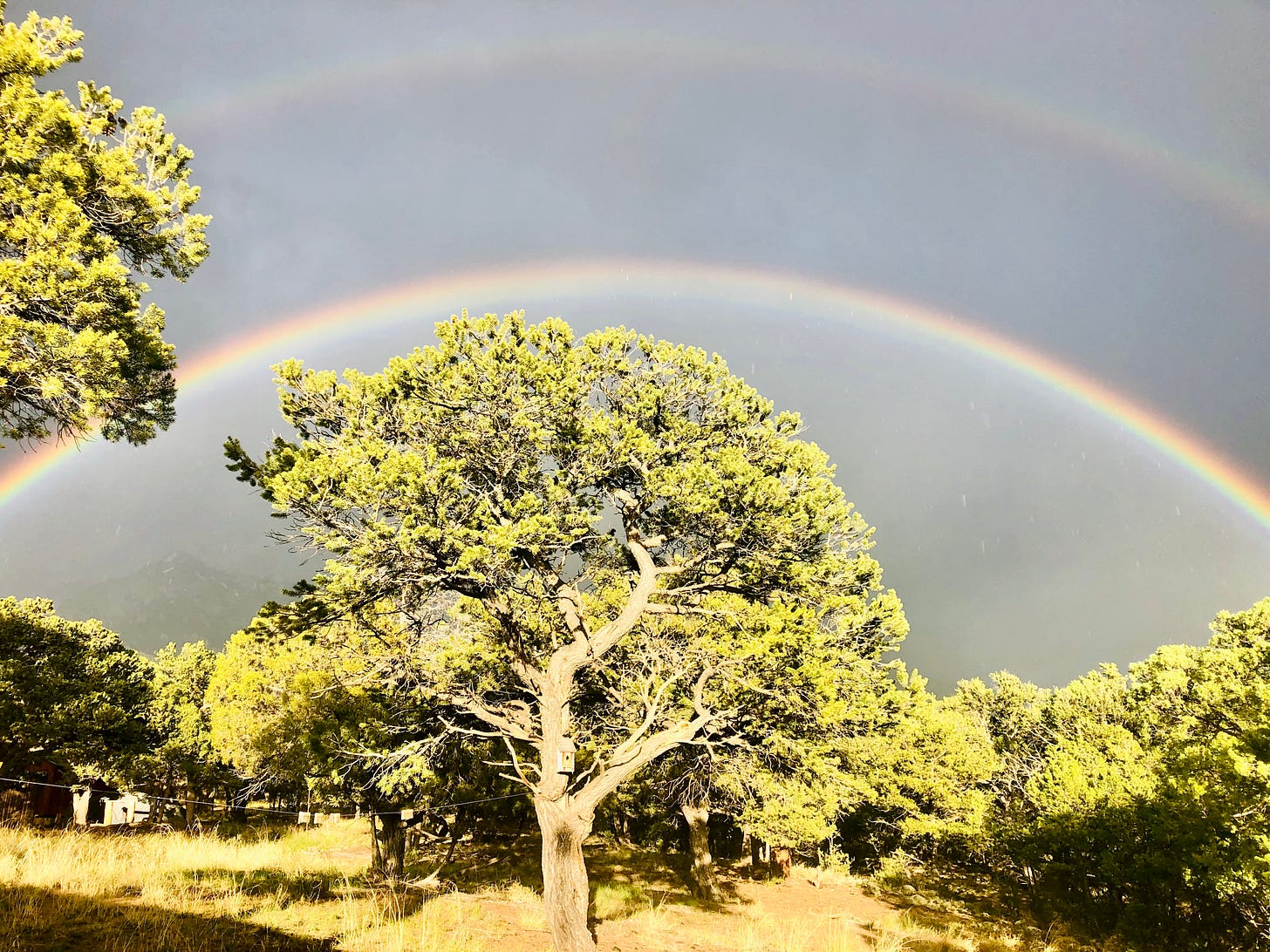
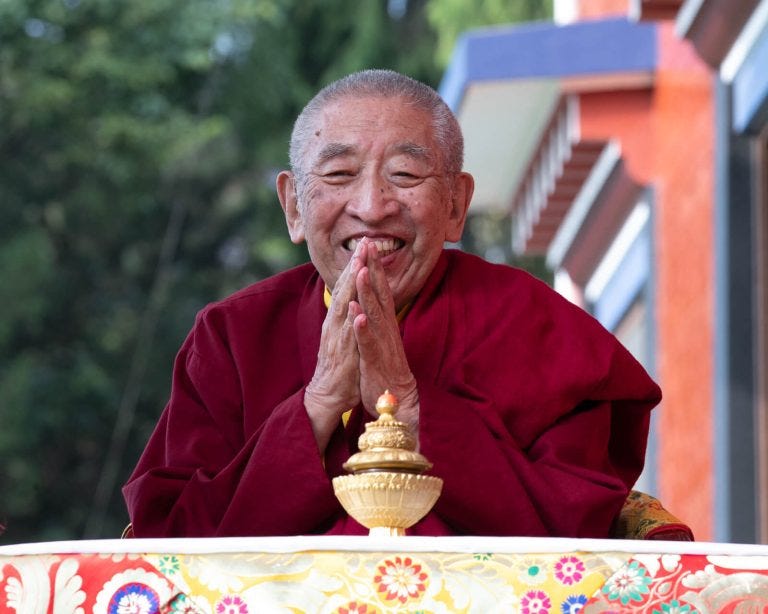
that's so beautiful, Marcella. it's always such a joy to remember him.
So sorry for your loss ❤️